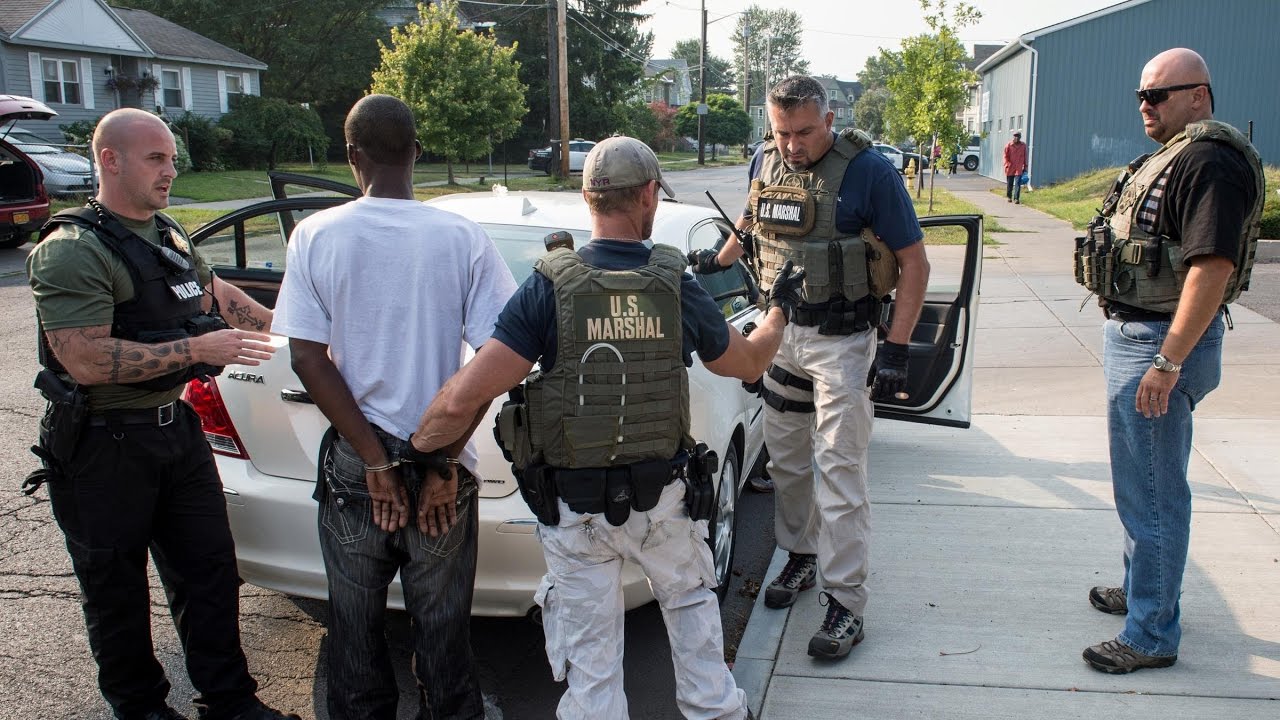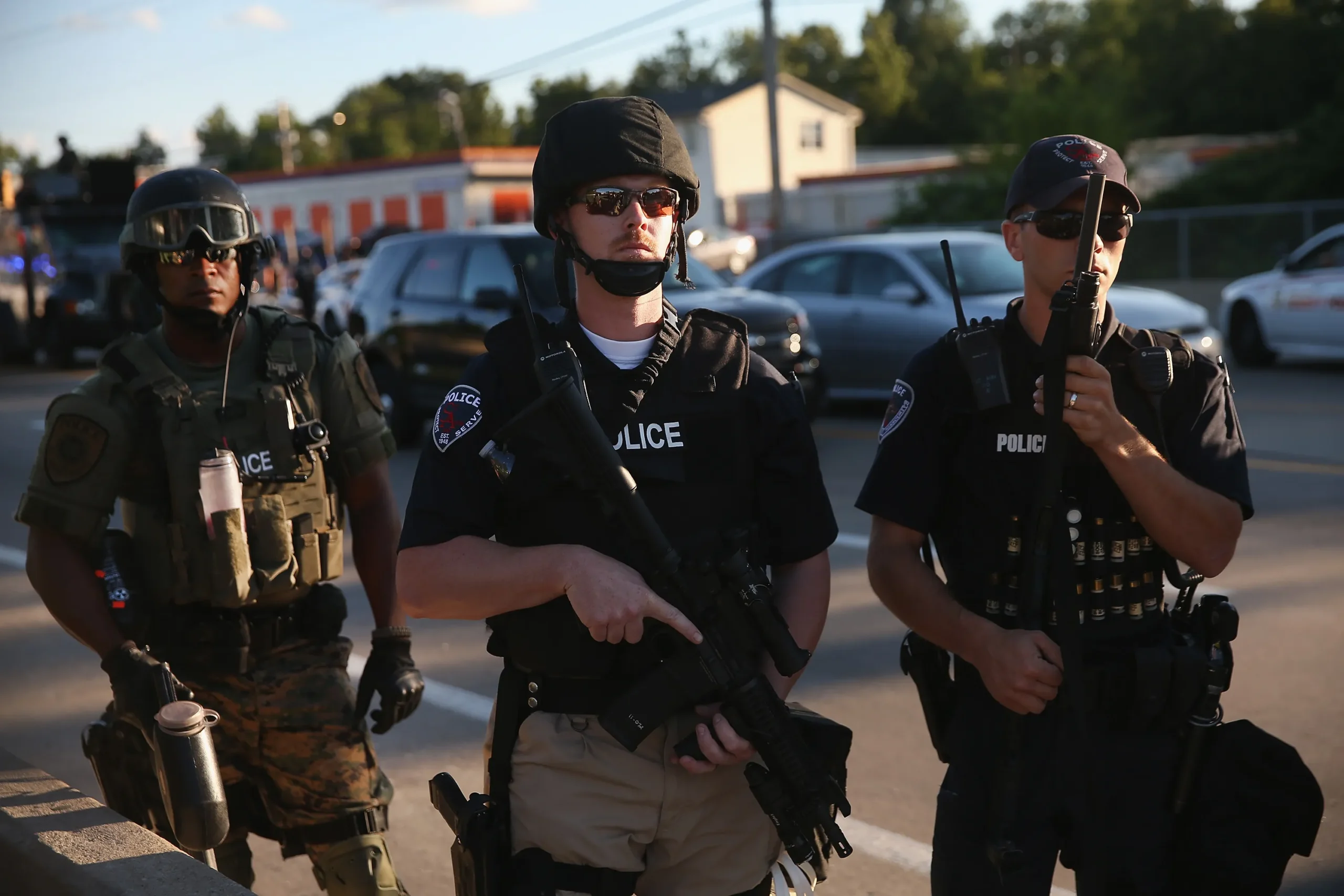What Can Bounty Hunters Do That Police Cannot? Key Differences in Authority and Legal Powers
Bounty hunters have always fascinated me with their wild mix of freedom and authority. Unlike police officers who follow strict rules and regulations bounty hunters operate in a gray area that lets them take bold actions. Their job isn’t just about chasing fugitives—it’s about using unique powers that police simply don’t have.
I’ve often wondered what really sets bounty hunters apart from the police. While both track down people who skip bail bounty hunters can cross lines that law enforcement can’t. This difference shapes how they work and why they’re sometimes called in when the police can’t get the job done. Let’s dive into what makes their role so unique and why their methods continue to spark debate.
Understanding the Roles of Bounty Hunters and Police

Understanding-the-Roles-of-Bounty-Hunters-and-Police
Bounty hunters and police officers perform fugitive recovery and law enforcement, but key differences exist in their roles, authority, and accountability. Bounty hunters work for bail bonds agencies and pursue individuals who skip bail, known as “skips” or fugitives. Police officers enforce the law, conduct investigations, apprehend suspects charged with crimes, and operate as government employees.
Authority and Legal Basis
Bounty hunters act on private contracts and derive their authority from bail bond agreements. They’re allowed by many states to enter private property without a warrant, use reasonable force to seize fugitives, and cross state lines in pursuit, depending on state laws. Police officers must obtain search or arrest warrants when entering private property, follow constitutional protections, and operate under municipal, state, or federal jurisdiction.
| Role | Main Employer | Legal Basis | Enter Property without Warrant | Cross State Lines | Use Deadly Force |
|---|---|---|---|---|---|
| Bounty Hunter | Bail Bond Agency | Bail Contract, State Law | Yes (in many states, with constraints) | Yes (with some limits) | Only if threatened, per state law |
| Police Officer | Government | Criminal Law, Constitution | No | No (FBI/USMS exception) | Only per strict legal thresholds |
Methods and Scope
Bounty hunters focus solely on fugitives out on bail, using tracking, surveillance, and direct apprehension. Police handle diverse public safety roles, such as responding to 911 calls, crime prevention, investigations, and community patrol.
Scope Example Table
| Function | Bounty Hunters | Police Officers |
|---|---|---|
| Fugitives on Bail | Yes | Yes |
| Missing Persons | No | Yes |
| Patrolling Public Spaces | No | Yes |
| Serving Civil Papers | No | Yes |
| Enforcing Court Warrants | No | Yes |
| Private Surveillance | Yes | No |
Accountability and Oversight
Police undergo training, background checks, and regular evaluations, facing oversight from internal affairs and independent bodies. Bounty hunters undergo fewer licensing and oversight requirements in many states. This difference can affect outcomes and practices, especially when force or entry into property is involved.
Legal Powers of Bounty Hunters Versus Police
Legal boundaries and operational powers differ sharply between bounty hunters and police officers. I compare their most critical legal authorities below using direct contrast and context.
Entry Without a Warrant
Bounty hunters enter a fugitive’s property without a warrant under many states’ bail contract laws. I observe that police officers need a judge-issued warrant for home entry except under specific exigent circumstances, aligning with Fourth Amendment protections. Bounty hunters gain entry authority when a bail bond surety relationship exists, according to Taylor v. Taintor, 83 U.S. 366 (1872). Police require probable cause and judicial approval except for hot pursuit or immediate threat cases.
| Authority Type | Bounty Hunters | Police Officers |
|---|---|---|
| Warrantless Entry | Permitted if bail contract exists | Prohibited (except limited emergencies) |
| Basis | Private bond contractual rights | Constitutional and statutory law |
| Oversight | Limited state licensing | Judicial and internal department review |
Cross-State Pursuits
Bounty hunters pursue fugitives across state lines with fewer restrictions. I can cross jurisdictions when a fugitive skips bail, as most states recognize fugitive recovery authority through uniform bail laws. Police officers require extradition procedures and permission from authorities in another state to operate outside their jurisdiction, under the Uniform Criminal Extradition Act. Bounty hunters act based on the bond surety’s stake and contractual obligation, not formal state authority.
| Action | Bounty Hunters | Police Officers |
|---|---|---|
| Cross-State Apprehension | Allowed with surety and bail documentation | Requires extradition and official request |
| Interstate Legal Constraints | Fewer interstate regulations | Subject to strict federal/state process |
| Primary Limitations | Prohibited in certain states (e.g., IL) | Limited to direct legal agreements |
Tactics and Methods Unavailable to Police

Tactics-and-Methods-Unavailable-to-Police
Bounty hunters use specific tactics and methods that police can’t use due to legal limits and departmental protocols. These practices focus on the pursuit of bail fugitives and allow more discretion at nearly every stage.
Use of Force and Detainment Rules
Bounty hunters operate under fewer restrictions than police regarding use of force and detainment during fugitive apprehensions. They act on private bail contracts, not public law.
- Entering Homes Without Warrants: I can enter a fugitive’s residence without a court warrant in many states, supported by Taylor v. Taintor, 83 U.S. 366 (1872).
- Detaining Without Probable Cause: I may detain someone who skips bail based solely on contractual obligation, while police must present probable cause and get judicial approval.
- Use of Restraints: I may use restraints or handcuffs on a fugitive without following police arrest protocols.
| Tactic | Bounty Hunters | Police |
|---|---|---|
| Entry Without Warrant | Yes | Rare/Exigent Only |
| Detention Standard | Contract | Probable Cause |
| Cross-State Pursuit | Fewer Limits | Requires Permission |
| Use of Force Protocol | Fewer Rules | Strict Departmental |
Conducting Surveillance and Tracking
Bounty hunters use methods during surveillance and tracking that police can’t use because of privacy laws and departmental oversight.
- Tracking Without Warrants: I can track and surveil a fugitive’s movements using GPS trackers or public cameras when acting on behalf of a surety, while police need a warrant for such surveillance (United States v. Jones, 565 U.S. 400 (2012)).
- Informal Interviews: I can approach friends, family, and witnesses in informal settings, unrestricted by Miranda requirements or departmental procedure.
- Disguises and Deception: I may use disguises, unmarked vehicles, and deception to blend in or trick fugitives during searches, with less oversight.
| Surveillance & Tracking Tool | Bounty Hunters | Police |
|---|---|---|
| GPS Tracking Without Warrant | Yes | No |
| Informal Witness Interrogation | Yes | No |
| Use of Disguises and Deception | Yes | No |
| Surveillance Without Departmental OK | Yes | No |
Limitations and Risks Unique to Bounty Hunters
Bounty hunters face distinct limitations and risks not shared by police. Their actions, though less restricted by certain laws, often expose them to unique liabilities and a lack of systemic protection.
Oversight and Accountability
Oversight for bounty hunters differs sharply from police. Most states require police officers to complete certified training, pass background checks, and adhere to internal affairs review. Bounty hunters often lack uniform standards—19 states don’t mandate training or licensing (National Conference of State Legislatures). Private bail bond companies monitor bounty hunters, making centralized oversight rare. Few states enforce comprehensive tracking for complaints or incidents involving bounty hunters.
| Entity | State Licensing Required | Agency Oversight | Public Complaint Tracking |
|---|---|---|---|
| Police | 50 | Government/Ministry | Yes |
| Bounty Hunters | 31 | Private/Bail Agencies | Rarely |
Potential For Abuse and Legal Consequences
Bounty hunters face elevated abuse risks due to wide operational leeway. Overreaching—such as entering the wrong property or using excessive force—frequently leads to severe legal repercussions. Unlike police, bounty hunters lack certain immunities, so civil lawsuits and criminal charges are common after mistakes. Instances include high-profile wrongful entry lawsuits in Illinois, Florida, and Texas from 2018 to 2022.
| Risk Factor | Police | Bounty Hunters | Example Cases (2018-2022) |
|---|---|---|---|
| Immunity from Lawsuit | Often Holds | Rarely Applies | IL, FL, TX wrongful entry |
| Abuse Liability | Administrative | Personal/Civil | 12+ lawsuits (Nationwide) |
| Training for Force | Mandatory | Optional (Varied) | No national requirement |
Real-World Examples

Real-World-Examples
Bounty hunters use powers that police cannot match under traditional law enforcement practices. After a fleeing defendant skipped bail in 2021, a bail bond agency in Arizona contracted a bounty hunter who tracked the person to a private apartment. I saw reports noting the bounty hunter entered the residence without a court-issued warrant and detained the individual, actions unavailable to local police due to Fourth Amendment constraints.
Instances in Nevada between 2019 and 2022 showed bounty hunters crossing state borders to apprehend bail jumpers. I read about a case where the bounty hunter crossed from California into Nevada without seeking approval from law enforcement in either state and returned the fugitive directly to a county jail, whereas police would have followed extradition protocols.
Data from the Professional Bail Agents of the United States (PBUS) and news reports illustrate distinctions in practices across regions and years:
| Case | Year | State(s) | Bounty Hunter Action | Police Limitation |
|---|---|---|---|---|
| A | 2021 | Arizona | Warrantless entry, private property | Police need warrant |
| B | 2020 | Texas | Detained suspect using only civil contract | Police require probable cause arrest |
| C | 2022 | Illinois, Indiana | Interstate pursuit, cross-border capture | Police require extradition process |
Bounty hunters sometimes use creative tactics. In Dallas in 2020, a bail jumper found in a casino was taken into custody by a bounty hunter after being identified at a gaming table. I found no reports of police entering the casino without a warrant or prior coordination, while the bounty hunter cited contractual authority and removed the fugitive with minimal notice to security.
| Casino-Related Case | Year | Location | Bounty Hunter Action | Police Limitation |
|---|---|---|---|---|
| D | 2020 | Dallas, TX (Casino) | Apprehended bail jumper inside casino using bond contract | Police need warrant and casino cooperation |
These examples clarify the distinct operational landscape of bounty hunters compared to police, with contractual authority supporting warrantless entry, state border crossings, and discretionary methods in spaces like casinos.
Conclusion
Exploring the world of bounty hunters opened my eyes to just how different their role is from traditional law enforcement. Their unique privileges and fewer restrictions give them a level of flexibility that police simply don’t have. This freedom comes with its own set of risks and responsibilities that can’t be ignored.
As I look at the evolving landscape of fugitive recovery, it’s clear that the line between legal authority and private enforcement will continue to spark debate. Understanding these differences helps me appreciate the complex balance between public safety, individual rights, and the pursuit of justice.
Frequently Asked Questions
What is a bounty hunter?
A bounty hunter is a private individual hired by bail bond agencies to locate and capture people who skip bail and fail to appear in court. They operate under contractual authority rather than government law enforcement powers.
How are bounty hunters different from police officers?
Bounty hunters work for bail bond agencies and pursue fugitives who skip bail, while police officers are government employees enforcing all laws and handling broader public safety duties. Bounty hunters can use tactics and enter property that police cannot, but have less oversight.
What legal powers do bounty hunters have?
Bounty hunters can, in many states, enter a fugitive’s home without a warrant based on bail contract laws. They may also pursue fugitives across state lines with fewer restrictions, whereas police need a warrant or special authorization.
Are bounty hunters held to the same accountability standards as police?
No, police officers undergo certified training, licensing, and internal reviews, while many bounty hunters face fewer requirements. Some states don’t mandate any training or licensing for bounty hunters, resulting in less oversight.
Can bounty hunters use force during apprehensions?
Yes, bounty hunters can use reasonable force to detain fugitives under bail contracts, but they must obey local laws. However, they have fewer restrictions than police officers and do not need to follow police arrest protocols.
Do bounty hunters need a warrant to enter private property?
In many states, bounty hunters do not need a court-issued warrant to enter private property if they are pursuing a fugitive who skipped bail, while police must obtain a warrant except in emergencies.
What risks or liabilities do bounty hunters face?
Bounty hunters face unique risks and can be sued or charged for wrongful actions, such as entering the wrong home. They lack the same legal protections (immunity) as police and are vulnerable to civil and criminal penalties.
How are bounty hunter practices controversial?
Their lower accountability and broad operational leeway have led to abuses and wrongful detentions. High-profile lawsuits highlight the risks and controversial nature of their unregulated practices in some states.
Can a bounty hunter cross state lines to catch a fugitive?
Yes, bounty hunters can often pursue fugitives across state lines without much restriction, acting on behalf of bail bond agents. Police must follow formal extradition laws and procedures for interstate pursuits.
What methods do bounty hunters use to track fugitives?
Bounty hunters use surveillance, tracking, informal interviews, disguises, and even deception. Their tactics are less restricted than police, allowing them to operate with more flexibility when searching for bail jumpers.
